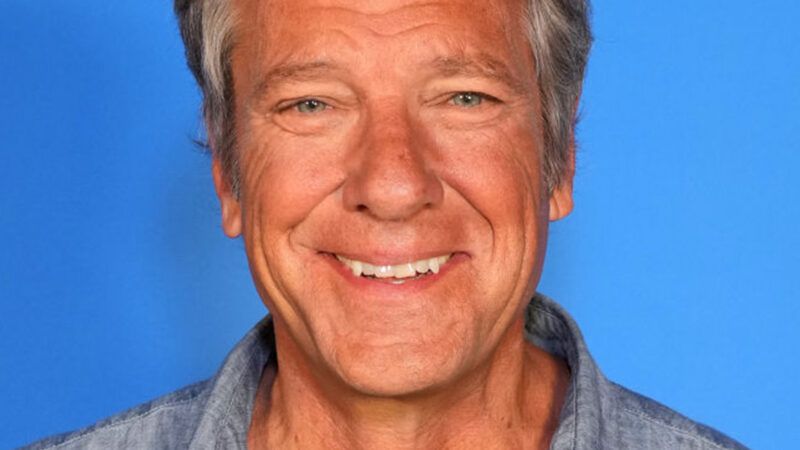Mike Rowe on Patriotism, Paul Harvey, and American Progress
"We're never going to be finished. Our country is a work in progress," says the producer of the new Something to Stand For documentary.

Podcaster and former Dirty Jobs host Mike Rowe stars in Something to Stand For, a patriotic documentary film in which he tells unknown stories about legendary figures in American history. Reason's Nick Gillespie spoke with Rowe about the film, his influences, and what to think about the decline of patriotism.
Q: Tell us about Something to Stand For.
A: Really all I did was take the format that worked well on the podcast, which was to tell these historical tales through the lens of a mystery while stealing shamelessly from the late, great Paul Harvey. We visited some monuments and memorials, and every few minutes you get another story, another mystery, something you didn't know about somebody you do.
Q: The storytelling is very engaging, but there's always a reveal at the end. At one point you end up at the National Mall, around the World War II Memorial, and you speak with a Korean War vet. What did talking to him bring up in you?
A: That was completely and totally unscripted, unplanned. There I was in the memorial and they've got the X on the ground where I'm supposed to land. The lights are just so. And of course we're behind schedule.
But then this guy rolls in in his wheelchair with nine or 10 other old men and their families. It's an honor flight and they're being wheeled over in front of that wall of stars. Each star is representative, I think, of 100 dead Americans. I looked to the director and I said, "Let's just do this real quick," and grabbed the camera guy. I went over and introduced myself. Guy's name was Andy Michael. He's 91 years old. He fought in Korea, same time as my dad did.
Within seconds, I'm triangulating an impossible set of coincidences with this old man who has tears running down his face as he tries to tell me how grateful he is to be there just in the presence of all of those men and to have his family with him. And then, within seconds, my whole crew migrates over. Suddenly there we are actually Forrest Gumping our way across the most authentic moment that I could hope to find that you simply couldn't script.
Q: You invoked the legendary broadcaster Paul Harvey, who was famous for a radio program called The Rest of the Story, which started right after World War II. He would tell a story and the listener wouldn't know who it was about until the reveal at the end, but it was always something amazing. Talk about Paul Harvey and why you find him inspiring.
A: The way Harvey told stories—and I'd [include] Studs Terkel, George Plimpton, Charles Kuralt—they all really made the stories their own and super personal.
I started writing these things I called The Way I Heard It, which was my rejoinder to The Rest of the Story. Just these little eight-minute mysteries. That format became the podcast.
If I can tell you something you don't know about somebody you do, and you have seven or eight minutes to spend in this little exercise, then I got you. This is a brief mystery for the curious mind with a short attention span. That's what worked for me when I got into the podcast world, and we'll see if it works in the movie space.
Q: How do we acknowledge the failings of the past and the failings of the present while also acknowledging that immense progress has been made?
A: Maybe it's the nature of the binary times that we're in that makes it very, very difficult to applaud one thing without condemning another. I think we're afraid to take a victory lap, and maybe we should be. Maybe that's just a bit premature or arrogant.
We're never going to be finished. Our country is a work in progress. It was formed by imperfect people, and we've done yeoman's work along the way. We are by no means done, but oh my God, look how far we've come. And if we can't take a moment to celebrate that, then I worry.
This interview has been condensed and edited for style and clarity.


Show Comments (10)